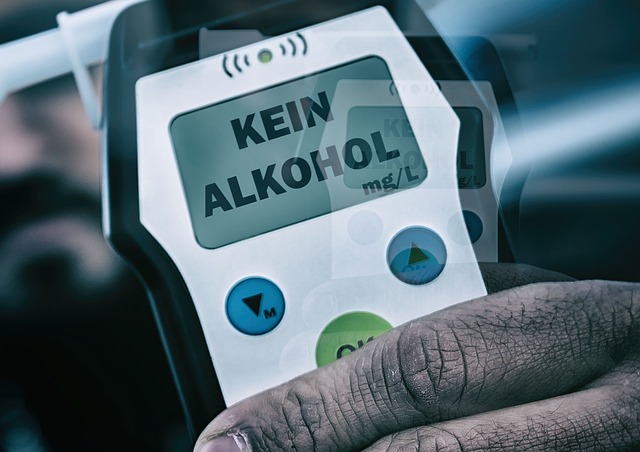Drug-Impaired Driving (DID) laws vary globally, posing significant challenges for foreign national employees facing charges, especially under strict zero-tolerance policies. These policies carry severe consequences, including job loss, immigration issues, and deportation risks. Foreign workers must seek experienced Foreign National Employee DUI Defense counsel to navigate complex legal systems, understand local regulations, and mitigate penalties through evidence challenge, field sobriety test questioning, and fair trial advocacy.
“Drug-Impaired Driving Zero Tolerance policies have become a global standard, with severe penalties targeting those who operate vehicles under the influence. This article delves into the multifaceted issue, exploring its international reach and impact on foreign national employees. We dissect the unique challenges and rights within the realm of Foreign National Employee DUI Defense, analyzing how zero-tolerance policies affect employment and immigration prospects. Additionally, we offer strategic insights for prevention and effective legal defense against drug-related driving charges.”
- Understanding Drug-Impaired Driving Laws: A Global Perspective
- Foreign National Employee DUI Defense: Challenges and Rights
- The Impact of Zero Tolerance Policies on Employment and Immigration
- Strategies for Prevention and Effective Defense in Drug-Related Driving Cases
Understanding Drug-Impaired Driving Laws: A Global Perspective

Drug-Impaired Driving (DID) laws vary greatly across countries, reflecting diverse cultural and legal landscapes. For foreign national employees facing DID charges, understanding these global differences is crucial. Many nations have adopted a zero-tolerance policy towards driving under the influence of drugs, often with strict penalties and minimal room for exception. This uniform stance stems from the recognition of drug-impaired driving’s severe consequences, including increased accident risk and impaired judgment.
When it comes to defending against Foreign National Employee DUI charges, legal strategies may differ based on the specific country’s laws. Some jurisdictions offer more leeway for mitigating factors or have distinct classifications for different drug types. For instance, some countries differentiate between prescription medication use and illegal substances, which can impact defenses available to an accused individual. Navigating these complexities requires a deep understanding of local DID laws, making it vital for foreign national employees to seek legal counsel experienced in international DUI defense strategies, particularly when facing cross-border or multinational legal challenges.
Foreign National Employee DUI Defense: Challenges and Rights

Many foreign national employees face unique challenges when it comes to Foreign National Employee DUI Defense. The primary hurdle is navigating complex legal systems and cultural differences, which can significantly impact their understanding and response to charges. Language barriers often play a significant role, leading to miscommunication and potential misunderstandings during interactions with law enforcement and legal professionals. This can result in incorrect interpretations of rights and consequences, affecting the outcome of their case.
Furthermore, foreign workers may be unaware of local driving laws and their specific implications for non-citizens. This lack of awareness coupled with pressure from employers or fear of deportation can lead to poor decision-making. Understanding one’s rights is crucial; many countries have zero-tolerance policies for drug-impaired driving, which means even a single offense can have severe repercussions, including loss of employment and deportation. Legal representation specialized in Foreign National Employee DUI Defense is vital to ensure these individuals are adequately protected and their rights preserved throughout the legal process.
The Impact of Zero Tolerance Policies on Employment and Immigration

Zero tolerance policies for drug-impaired driving have significant implications for employment and immigration, particularly for foreign national employee DUI defense. Such stringent laws can lead to severe consequences for individuals convicted of driving under the influence, including loss of licensure, hefty fines, and potential imprisonment. These penalties may disproportionately affect those in the workforce, especially foreign nationals who rely on their driving privileges for their livelihoods.
In employment contexts, a DUI conviction can result in job loss or restrictions on career advancement. For foreign workers, this could mean difficulties in maintaining legal status or even deportation proceedings. The impact extends to immigration policies as well; individuals with DUI convictions may face barriers to re-entering the country or obtaining certain visas, further complicating their employment prospects and overall stay in the host nation.
Strategies for Prevention and Effective Defense in Drug-Related Driving Cases

In addressing Drug-Impaired Driving Zero Tolerance, prevention and robust defense strategies are paramount, especially for foreign national employee DUI cases. One effective preventive measure is stringent pre-employment screening and regular random drug testing for all employees, particularly those in sensitive roles like operating heavy machinery or driving company vehicles. Companies should establish clear policies banning substance abuse while on duty or company property, with consequences clearly communicated to ensure compliance.
For defense, legal strategies often focus on challenging the admissibility of evidence. This includes questioning the reliability of field sobriety tests and breathalyzer readings, as well as advocating for the exclusion of statements made without the presence of legal counsel. Foreign national employees may also benefit from understanding their rights regarding translation services and legal representation to ensure effective communication and a fair trial. Understanding local laws and regulations specific to Drug-Impaired Driving Zero Tolerance policies is crucial for building a solid defense strategy, particularly in cases involving foreign nationals who may face unique legal challenges.
Drug-Impaired driving laws, with a zero-tolerance approach, significantly impact individuals, especially foreign national employees facing immigration challenges. Understanding global perspectives and the unique defenses available for Foreign National Employee DUI cases is crucial. By implementing effective prevention strategies and exploring legal options, we can mitigate the harsh consequences these policies may have on employment and immigration status. This comprehensive understanding of drug-impaired driving laws and their implications encourages a balanced approach to justice and fairness.






